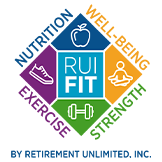Your golden years should be filled with cherished memories, and nutrition is an integral part of protecting your mind. At communities like Ashleigh at Lansdowne, we believe that living your best life starts with making informed choices about your health—including what you eat.
The connection between diet and memory is stronger than many people realize. The foods you choose don’t just fuel your body; they directly impact your brain’s ability to form new memories, recall information, and maintain sharp cognitive function.
While some foods support brain health, others can actively work against your memory and mental clarity. You can start by removing or limiting these 5 problem foods: processed foods, sugary drinks, high-sodium foods, artificial sweeteners, and alcohol.
Understanding which foods to avoid—and knowing better alternatives—empowers you to make choices that support a vibrant, mentally sharp lifestyle.
Processed Foods: Convenience at a Cost
Processed foods might save time in the kitchen, but they come with a hidden price tag for your brain health. These are foods altered from their natural state for convenience, flavor, or longer shelf life. Think packaged snacks, frozen meals, and sugary cereals.
The problem lies in what’s added during processing: preservatives, unhealthy fats, excess sugar, and salt.
These ingredients can trigger chronic inflammation throughout your body, including your brain. When inflammation affects brain tissue, it disrupts communication between brain cells and impairs your ability to form and retrieve memories.
Research shows diets high in processed foods can increase your dementia risk. The inflammatory response these foods create can accelerate cognitive decline, making it harder to maintain the mental sharpness you need for daily activities and meaningful conversations with loved ones.
Common processed foods to limit:
- Packaged snacks like chips & cookies
- Frozen dinners & convenience meals
- Sugary breakfast cereals
- Canned soups with added preservatives
- Processed meats like hot dogs & lunch meats
Brain-friendly alternatives include fresh fruits, raw nuts, plain yogurt with berries, and home-prepared meals using whole ingredients. Meal-prep sessions can help you avoid processed options while maintaining convenience.
Sugary Drinks: Sweet Today, Forgetful Tomorrow
Sugary beverages create a roller coaster effect in your bloodstream that your brain pays for later. When you consume drinks high in added sugars, your blood sugar levels spike rapidly, followed by a crash that leaves you feeling foggy and unfocused.
Over time, these blood sugar spikes damage the delicate blood vessels that supply your brain with oxygen and nutrients. Poor blood flow to brain tissue directly impacts memory formation and recall.
Consistently elevated blood sugar interferes with insulin function in the brain—a process researchers believe contributes to Alzheimer’s disease development.
Sugary drinks to avoid:
- Regular sodas & soft drinks
- Fruit juices with added sugars
- Energy drinks
- Sweetened iced teas & coffee drinks
- Flavored lemonades & punch
Refreshing alternatives include sparkling water with fresh fruit slices, unsweetened herbal teas, and water infused with cucumber, mint, or citrus. These options satisfy your thirst without compromising your cognitive health.

High-Sodium Foods: When Salt Becomes the Enemy
While your body needs some sodium to function properly, excessive salt intake can harm brain health. High sodium levels damage blood vessels throughout your body, including the critical vessels that supply your brain with fresh blood and oxygen.
When blood flow to the brain becomes restricted, cognitive decline and memory impairment follow. High sodium intake also raises blood pressure, which compounds the problem by putting additional strain on your cardiovascular system and reducing the brain’s access to vital nutrients.
High-sodium foods to watch:
- Canned soups & broths
- Salty packaged snacks like pretzels & crackers
- Processed meats, including bacon & deli meats
- Frozen dinners & convenience foods
- Condiments like soy sauce & salad dressings
Lower-sodium swaps include fresh or frozen vegetables instead of canned versions, herbs and spices for seasoning instead of salt, and home-cooked meals where you control sodium content. Your taste buds will adjust to less salt over time, and your brain will benefit immediately.
Artificial Sweeteners: Not-So-Sweet Side Effects
Artificial sweeteners might seem like a smart alternative to sugar, but emerging research suggests they come with their own risks. Regular consumption of artificial sweeteners may increase the risk of stroke and severe memory problems.
These synthetic sugar substitutes can also disrupt your gut health, which scientists now understand plays a crucial role in brain function through the gut-brain connection.
When your digestive system isn’t functioning optimally, it can negatively impact cognitive performance and memory.
Common sources of artificial sweeteners:
- Diet sodas & sugar-free drinks
- Sugar-free gum & candies
- Diet yogurts & low-calorie desserts
- Protein bars marketed as sugar-free
- Packaged foods labeled “diet” or “low-calorie”
Natural sweetening options include small amounts of honey, pure maple syrup, or stevia. It’s also a healthy step to gradually reduce your overall sweetener intake and retrain your palate to appreciate the natural sweetness found in fresh fruits and whole foods.
Alcohol: Moderation Matters for Memory
While an occasional glass of wine with dinner isn’t cause for concern, excessive alcohol consumption poses serious risks to memory and cognitive function.
Alcohol interferes with your brain’s ability to form new memories. It can cause both short-term memory gaps and long-term cognitive decline.
For older adults, alcohol’s effects are magnified. It accelerates age-related changes in the brain and can worsen memory performance over time.
Additionally, alcohol can interact dangerously with many medications commonly prescribed for health conditions that become more prevalent with age.
Guidelines for safe consumption:
- Limit to one drink for women & 2 for men per day
- Always drink water alongside alcoholic beverages
- Avoid alcohol if it interacts with your medications
- Consider alcohol-free days throughout the week
Enjoyable alternatives include mocktails made with sparkling water and fresh fruit, herbal teas with interesting flavors, or simply water with a splash of 100% fruit juice for special occasions.
Your Path to Better Brain Health
Making smarter food choices doesn’t mean completely overhauling your diet overnight. Small, sustainable changes can lead to significant improvements in your cognitive health and overall well-being.
Focus on whole, nutrient-dense foods while gradually reducing your intake of processed options.
At Ashleigh at Lansdowne, part of Retirement Unlimited, Incorporated (RUI), we understand that good nutrition is just one piece of living your best life.
Our dining programs focus on fresh, wholesome ingredients that nourish both body and mind, while our wellness initiatives support you in making informed health choices.Your brain—and your future self—will thank you for the care you show today. Take the first step toward a sharper, healthier future by booking a tour at Ashleigh at Lansdowne. Discover how we support vibrant living for years to come!













